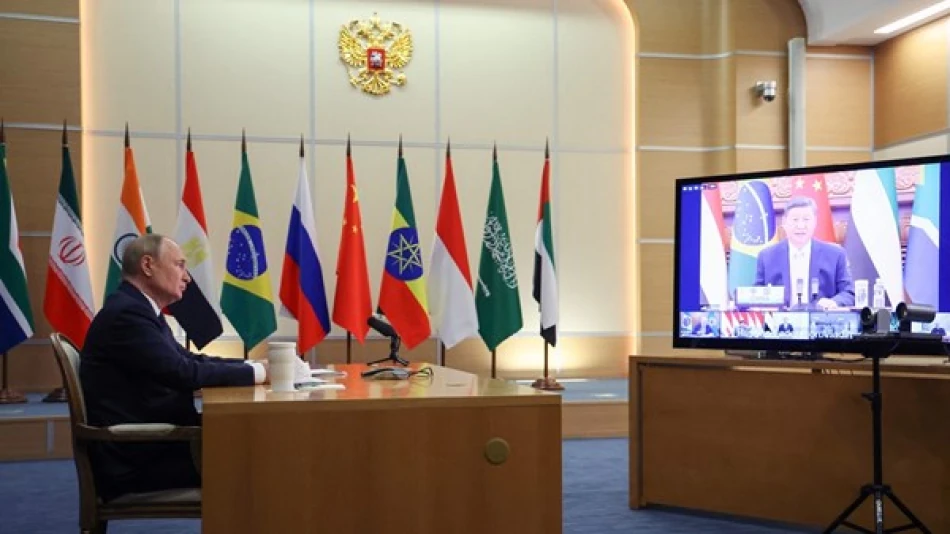
China Urges BRICS Alliance to Confront All Forms of Protectionism
China's Xi Jinping Rallies BRICS Against Protectionism in Strategic Economic Push
Chinese President Xi Jinping used a virtual BRICS summit on Monday to call for unified resistance against "all forms of protectionism," signaling Beijing's continued push to position the bloc as a counterweight to Western-dominated trade systems. The remarks come as global trade tensions persist and developing economies seek alternatives to traditional multilateral frameworks.
Xi's Anti-Protectionist Message Takes Center Stage
Speaking to leaders of Brazil, Russia, India, China, and South Africa, Xi emphasized the need to "support the multilateral trading system with the World Trade Organization at its core, and confront all forms of protectionism." His comments reflect China's ongoing strategy to present itself as a champion of free trade, despite facing criticism over its own trade practices from Western nations.
The Chinese leader stressed that "no matter how the international situation changes, we must remain steadfast in supporting the construction of an open global economy, sharing opportunities, and achieving win-win results through openness."
Strategic Timing Amid Global Economic Uncertainty
Xi's call comes at a critical juncture for global trade. With the U.S. maintaining tariffs on Chinese goods and the European Union increasingly scrutinizing Chinese investments, Beijing is doubling down on partnerships with emerging economies. The BRICS bloc, representing roughly 40% of the world's population and a quarter of global GDP, offers China a platform to advance its vision of alternative economic governance.
BRICS as an Economic Alternative
The timing of Xi's remarks is particularly significant as BRICS members have been exploring mechanisms to reduce dependence on Western financial systems. The bloc has discussed creating alternative payment systems and expanding trade in local currencies—moves that could reshape global commerce if successfully implemented.
Market and Investor Implications
For investors and multinational corporations, Xi's emphasis on openness within the BRICS framework suggests potential opportunities in emerging markets, but also highlights the growing fragmentation of global trade. Companies may need to navigate increasingly complex supply chains as economic blocs develop parallel systems.
The push for BRICS economic integration could accelerate if Western sanctions and trade restrictions continue to expand, potentially creating new investment corridors between member nations while complicating access to traditional Western markets.
Historical Context and Future Trajectory
China's anti-protectionist stance mirrors its approach during the 2008 financial crisis, when Beijing positioned itself as a stabilizing force in global markets. However, this time the context is markedly different, with geopolitical tensions running higher and technological competition intensifying between major powers.
The success of Xi's vision will likely depend on whether BRICS members can move beyond rhetoric to create concrete economic mechanisms that offer genuine alternatives to existing Western-led institutions. Recent expansions of the bloc to include new members suggest momentum is building, but implementation challenges remain substantial.
Most Viewed News

 Layla Al Mansoori
Layla Al Mansoori






